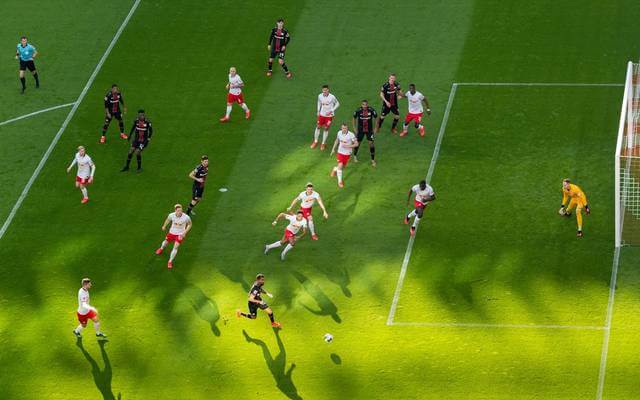
Zurich – FIFA wants to ensure clarity in the corona crisis with new guidelines for the transfer market. But even after the recommendation to adjust the contracts of players worldwide to the actual conclusion of the currently interrupted season, many questions remain.
The Bundesliga continues to face plenty of problems around June 30th – the day of the previously agreed end of season in almost all top European leagues.
Is the FIFA recommendation legally binding?
No. The world association says itself that it hopes and expects the guidelines to be “followed worldwide”. At the request of the world association, expiring contracts should apply until the season is over. Club changes should also only take place afterward. “From my point of view, the recommendation is pure actionism,” said Gregor Reiter, managing director of the German Football Players’ Association (DFVV), the German press agency. “The question of the term of contracts is not decided by a world association, but by the contracting parties.”
How many players are affected?
In the Bundesliga alone more than 100. The contract expires with over 70 professionals from the top German class, with almost 40 players a loan ends on June 30. Besides, changes have already been agreed in summer, such as the transfer from Schalke keeper Alexander Nubel to FC Bayern. The German Football League has so far been counting on being able to complete the currently interrupted season by the end of June.
Is there a big mess on June 30th?
There are also legal experts for whom this date is not the only decisive criterion. According to labor lawyer Philipp Fischinger from the University of Mannheim, the contracts would automatically be extended beyond June 30 and only end with the actual end of the season. The model contract of the German Football Association, for example, provides for a term until June 30, but the addition “end of the game year” is given in brackets. “Of course, despite this assessment, it is recommended that those involved coordinate and make legally secure agreements,” Fischinger recently told the “kicker”.
What can a solution look like?
The players’ association, which claims to have more than 75 members, assumes that professionals will find an agreement with their previous clubs. “If there are reasons that prevent a season end on June 30, I think it is possible that those affected would be ready for the Bundesliga to discuss the legal framework of their contracts to find solutions there,” said Reiter. “It would be a feat to negotiate, but you could do it.”
But what about the European Cup season?
The European Football Union UEFA has given priority to the national leagues. Champions League and Europa League could still be played until August, said Continental Director Aleksander Ceferin last. What will happen to the player contracts of the European Cup participants after the possible end of the national season is still unclear. Besides, regular league closing in Spain and Italy, for example, is even further away than in Germany. This also has an impact on the transfer window in which players are allowed to switch – here, too, FIFA is open to “flexible solutions”.













